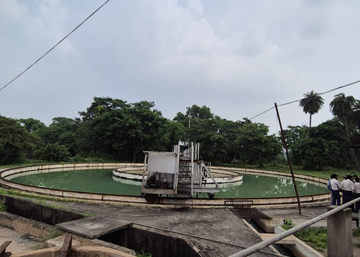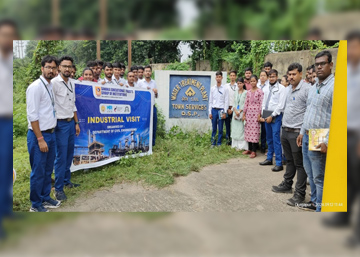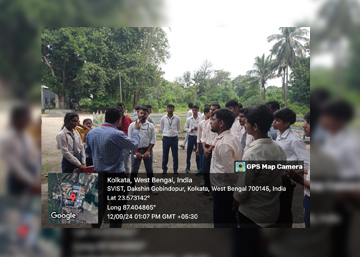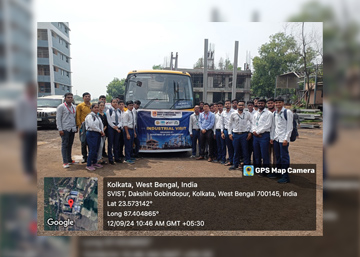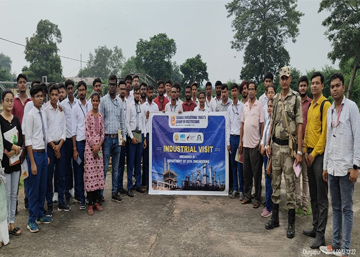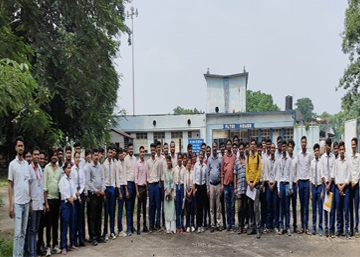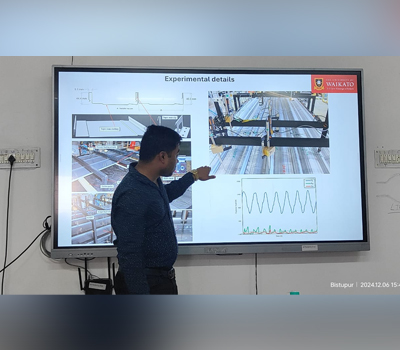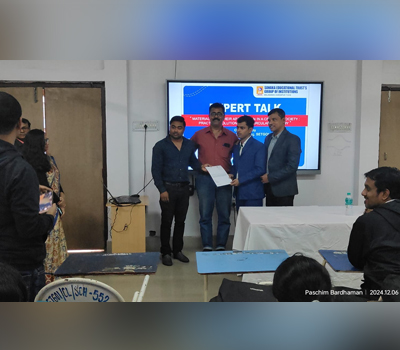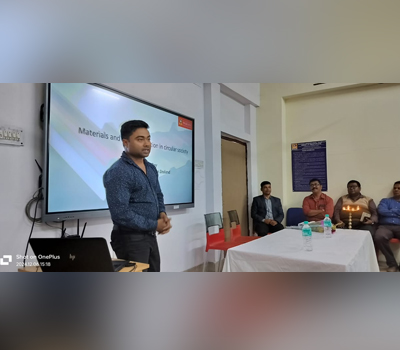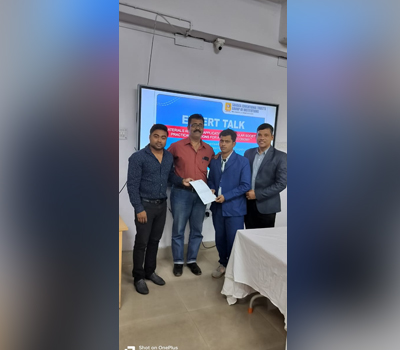Introduction to the Undergraduate Programme
B. Tech in Civil Engineering programme of SETGOI is designed with an endeavour to create globally competitive and employable engineers. The programme offers the students a conducive and rewarding environment by contributing to seminars, live projects and case studies to pursue the ideas, cultivate the spirit of curiosity and sustain passion for excellence. The perfect blend of IndustryAcademia environment develops students with practical hands-on sessions offering a dynamic teaching program for creating vibrant and successful community of professionals who can develop both concept and skill essential for drawing, design, analysis, construction and maintenance of various kinds of Civil Engineering projects; teaching, research for academia. Dedicated faculty of the programmes tries to disseminate amongst the students the latest developments in Structural Design, Precast & Pre-stressed Building Construction, Roadway Design, AI Technology in Traffic Engineering, Hydro-dynamic Projects, Advanced Surveying, CAD, STAAD Pro,
Who is the Programme for?
The programme is designed for those who are interested to make a career in
| Major Career Opportunities | Higher Education Opportunities | Alternative Career Options |
|---|---|---|
|
|
|
Curriculum Structure
| Sl No. | Category | Breakup of Credits | Credit Distribution % |
|---|---|---|---|
| 1. | Humanities & Social Sciences + Management Courses | 12 | 7.5 |
| 2. | Basic Science Courses | 24 | 15 |
| 3. | Engineering Science Courses | 32 | 20 |
| 4. | Professional Core Courses | 52 | 32.5 |
| 5. | Project / Internship | 12 | 7.5 |
| 6. | Professional Elective Courses | 20 | 12.5 |
| 7. | Open Elective Courses | 8 | 5 |
| 8. | Mandatory Courses | 0 | 0 |
| Total Credits | 160 | 100 | |
Curriculum Details
Laboratories
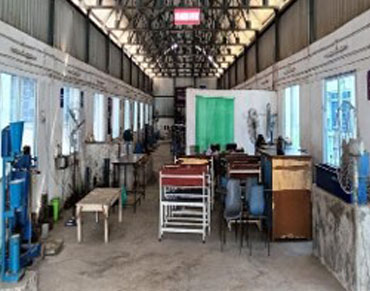
Civil Engineering Laboratory
Civil Engineering Laboratory is very important for gaining knowledge regarding building and road construction.....

Civil Engineering Laboratory
Civil Engineering Laboratory is very important for gaining knowledge regarding building and road construction; strength of materials; field surveying; bearing capacity of soil; characteristics of various types soil particles; measurement of fluid flow; various types of rock minerals; and water quality measurement.
LIST OF SOFTWARE
- AutoCAD 2022.
- Stad Pro V8i.
- MatLab 2014.
- MS Word-Excel 2010.
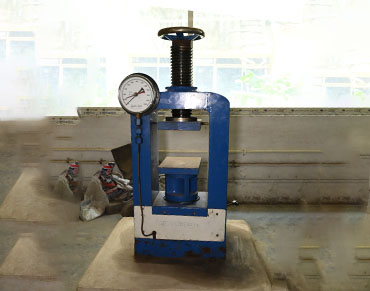
Concrete Technology Laboratory
The concrete technology lab is very important for Civil Engineering Constructions. The tests are conducted to determ......

Concrete Technology Laboratory
The concrete technology lab is very important for Civil Engineering Constructions. The tests are conducted to determine the properties in terms of strength, fatigue, durability, workability of cement concrete and for preparing concrete mix design. The major equipments in this laboratory are: Compressive Testing Machine (CTM), Compacting Factor Testing Machine, Slump Test Apparatus, Vee Bee Apparatus, Vicat Apparatus, Concrete Compacting Vibration equipment etc.
LIST OF SOFTWARE
- AutoCAD 2022.
- Stad Pro V8i.
- MatLab 2014.
- MS Word-Excel 2010.
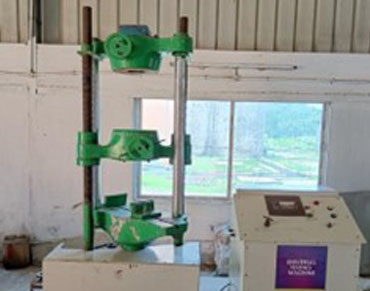
Solid Mechanics Laboratory
In this laboratory experiments perform with applying various types of loads to various materials under different conditions....

Solid Mechanics Laboratory
In this laboratory experiments perform with applying various types of loads to various materials under different conditions for finding out the strength of materials. The major equipments in this laboratory are: Universal Testing Machine (UTM), Torsion Testing Machine, Hardness Testing Equipment (Brinnel and Rockwell), Impact Testing Testing Machine (Izod and Charpy), etc.
LIST OF SOFTWARE
- AutoCAD 2022.
- Stad Pro V8i.
- MatLab 2014.
- MS Word-Excel 2010.

Soil Mechanics Laboratory
Soil Mechanics Laboratory has an important role in the design, construction, maintenance of engineering structure. Soil properties and characteristic....

Soil Mechanics Laboratory
Soil Mechanics Laboratory has an important role in the design, construction, maintenance of engineering structure. Soil properties and characteristics; natural moisture content; specific gravity of cohesion-less and cohesive soils; density of soil by Core Cutter method and Sand Replacement method; Liquid Limit; Compaction characteristics of soil by Standard Proctor Compaction Test (SPCT) are studied in this Laboratory
LIST OF SOFTWARE
- AutoCAD 2022.
- Stad Pro V8i.
- MatLab 2014.
- MS Word-Excel 2010.

Transportation Engineering Laboratory
The laboratory provides experiments setup for finding out the characteristics of Fine and Coarse Aggregates; properties of Bitumen......

Transportation Engineering Laboratory
The laboratory provides experiments setup for finding out the characteristics of Fine and Coarse Aggregates; properties of Bitumen by Softening Point Test, Flash Point Fire Point Test, Ductility Tests and Marshall Stability Test; which are very important for pavement construction
LIST OF SOFTWARE
- AutoCAD 2022.
- Stad Pro V8i.
- MatLab 2014.
- MS Word-Excel 2010.
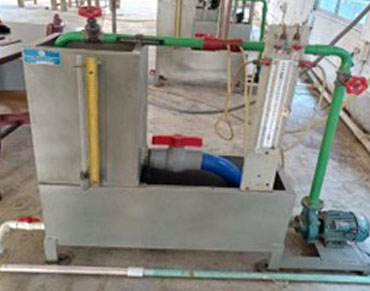
Fluid Mechanics Laboratory
In this laboratory, the behaviour of fluid studies with application of various forces and at different conditions. The major equipment of......

Fluid Mechanics Laboratory
In this laboratory, the behaviour of fluid studies with application of various forces and at different conditions. The major equipment of this laboratory are: Orifice-meter, Venturimeter, Centrifugal Pump, Reciprocating Pump, Wheel Turbine etc.
LIST OF SOFTWARE
- AutoCAD 2022.
- Stad Pro V8i.
- MatLab 2014.
- MS Word-Excel 2010.
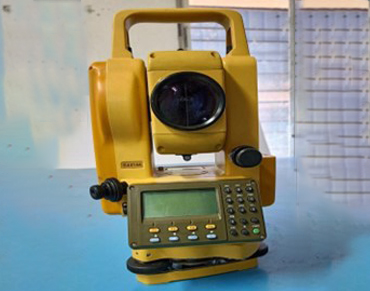
Surveying & Geomatics Laboratory
The objective of surveying laboratory is to make student familiar to draw map and cross sectional drawing with suitable.....

Surveying & Geomatics Laboratory
The objective of surveying laboratory is to make student familiar to draw map and cross sectional drawing with suitable scale by using different surveying instruments like Total Station (TS), Theodolite, Auto Level, Global Positioning System (GPS).
LIST OF SOFTWARE
- AutoCAD 2022.
- Stad Pro V8i.
- MatLab 2014.
- MS Word-Excel 2010.

Engineering Geology Laboratory
The application of this laboratory to Civil Engineering is to study about the geological factors regarding the location, design....

Engineering Geology Laboratory
The application of this laboratory to Civil Engineering is to study about the geological factors regarding the location, design, construction, operation and maintenance of the engineering works. Polarised Microscope is very important apparatus in this laboratory.
- AutoCAD 2022.
- Stad Pro V8i.
- MatLab 2014.
- MS Word-Excel 2010.

Environmental Engineering Laboratory
Environmental engineering laboratory is concerned with the natural resource management, use of water, environmental pollution.......

Environmental Engineering Laboratory
Environmental engineering laboratory is concerned with the natural resource management, use of water, environmental pollution and human health. An environmental engineer is responsible for improving the quality of environment, public health and develops solutions to minimize the degradation of natural resources. Important apparatus are: Turbidity meter, pH meter etc.
- AutoCAD 2022.
- Stad Pro V8i.
- MatLab 2014.
- MS Word-Excel 2010.
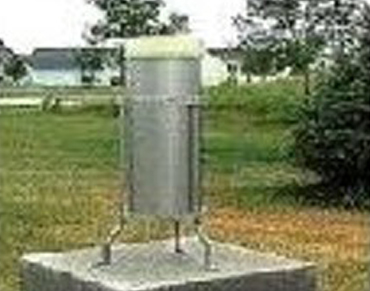
Water Resource Engineering Laboratory
Water resources engineers fulfil a wide variety of roles in designing and managing WaterBased Systems. These roles include designing major water distri...

Water Resource Engineering Laboratory
Water resources engineers fulfil a wide variety of roles in designing and managing WaterBased Systems. These roles include designing major water distribution systems that transport water to water users and collection systems that convey waste and storm water, managing surface and ground water resources, metering and quantifying flows in rivers and streams, modelling and designing major water resources projects. Major equipments are: Raingauge, Pan Evaporometer etc.
- AutoCAD 2022.
- Stad Pro V8i.
- MatLab 2014.
- MS Word-Excel 2010.
activity gallery
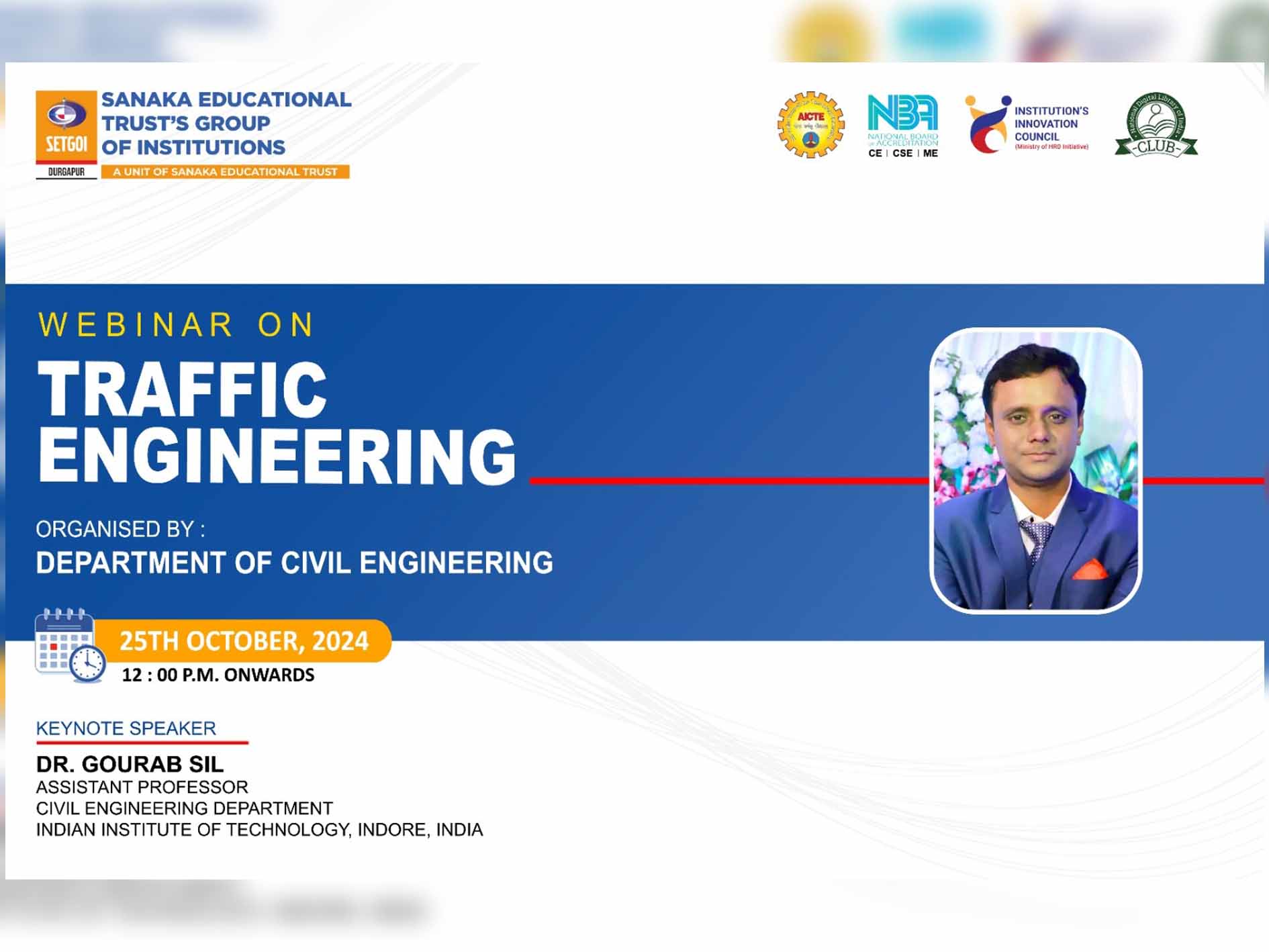
Career Guidance & Mentoring
- Faculty Mentor monitors the personal and professional development of individual student mentee.
- Guides curricular, co-curricular and extra-curricular activities.
- Mentor establishes a personal relationship and addresses the various issues of the student.
DEPARTMENT VISION:
The Department of Civil Engineering envisages to be recognized as excellence in engineering, technology, and innovative design solution and to promote high standard, outstanding, and ethically fair civil engineers who can contribute to the technological and socio-economic development of the nation.
DEPARTMENT MISSION:
- DM1: Academic Excellence To imparting, and inculcate, the students to know the basic, fundamental, and technical insights in the basic science and civil engineering domain through effective methodologies of the teaching-learning process
- DM2: Competency, Social Responsibility& Sustainable Development To provide necessary infrastructure, resources, R&D facilities, and industry collaboration platform to enhance the innovative skills and ideas in the civil engineering domain to provide innovative design solutions to the industry and society to improve sustainability and economic development of the nations.
- DM3: Ethics & Values Sensitizing students to uphold the highest ethical standards, foster values with professional standards and inculcate healthy and competitive spirit towards higher education and successful career civil engineering domain to serve the society and nation ethically
PROGRAM EDUCATIONAL OBJECTIVES (PEO):
Graduates of Civil Engineering department shall:
- PEO 1: To impart fundamental knowledge of basic science, humanities, engineering, and technology to transform the students into expert civil engineers.
- PEO 2: To nurture the students' design, analytical skills, and mental ability for decision-making and solving critical problems in the civil engineering domain.
- PEO 3: Create themselves as responsible professionals with awareness about sustainable development, environmental problems, and economic and societal issues related to human values and engineering ethics
PROGRAM SPECIFIC OUTCOMES (PSO):
- PSO 1: Possessing knowledge of structural design, surveying, low-cost housing, etc., and the capacity to manage massive infrastructure projects while assuring their safe and cost-effective implementation.
- PSO 2: The capacity to develop and carry out high-quality construction projects while taking the public's requirements into account considering health, safety, cultural, societal and environmental factors and work responsibly towards building sustainable civil engineering designs to improve living and work individually or as a team in managing projects in multi-disciplinary environments.
PROGRAM OUTCOMES (PO):
| PO1 | Engineering Knowledge: Apply the knowledge of mathematics, science, engineering fundamentals, and an engineering specialization to the solution of complex engineering problems. |
|---|---|
| PO2 | Problem Analysis: Identify, formulate, review research literature, and analyse complex engineering problems reaching substantiated conclusions using first principles of mathematics, natural sciences and engineering sciences. |
| PO3 | Design/Development of Solutions: Design solutions for complex engineering problems and design system components or processes that meet the specified needs with appropriate consideration for the public health and safety, and the cultural, societal, and environmental considerations. |
| PO4 | Conduct Investigations of Complex Problems: Use research-based knowledge and research methods including design of experiments, analysis and interpretation of data, and synthesis of the information to provide valid conclusions for complex problems |
| PO5 | Modern Tool Usage: Create, select, and apply appropriate techniques, resources, and modern engineering and IT tools including prediction and modelling to complex engineering activities with an understanding of the limitations. |
| PO6 | The Engineer and Society: Apply reasoning informed by the contextual knowledge to assess societal, health, safety, legal and cultural issues and the consequent responsibilities relevant to the professional engineering practice. |
| PO7 | Environment and Sustainability: Understand the impact of the professional engineering solutions in societal and environmental contexts, and demonstrate the knowledge of, and need for sustainable development. |
| PO8 | Ethics: Apply ethical principles and commit to professional ethics and responsibilities and norms of the engineering practice. |
| PO9 | Individual and Team Work: Function effectively as an individual, and as a member or leader in diverse teams, and in multidisciplinary settings. |
| PO10 | Communication: Communicate effectively on complex engineering activities with the engineering community and with society at large, such as, being able to comprehend and write effective reports and design documentation, make effective presentations, and give and receive clear instructions. |
| PO11 | Project Management and Finance: Demonstrate knowledge and understanding of the engineering and management principles and apply these to one’s own work, as a member and leader in a team, to manage projects and in multidisciplinary environments. |
| PO12 | Life-long Learning: Recognize the need for, and have the preparation and ability to engage in independent and lifelong learning in the broadest context of technological change. |











